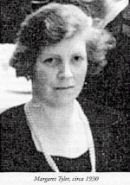Another nice little Hahnemannianism:-
“That the ordinary physicians, by mingling iron in the same prescription with bark, often dish up for the patient a repulsive looking and unsavoury ink, may be overlooked, but they must be told that a compound results from this mixture that possesses neither the virtues of cinchona bark nor those of iron.”
The article from which we have quoted is delightful: and should be read “in its entirety”, as they say when they put Hamlet, the whole Hamlet, on the stage-occasionally.
GUERNSEY says, “The chief keynote calling for the use of China is found in the sufferings caused by the loss of fluids, such as haemorrhage, galactorrhoea, seminal emissions, diarrhoea, etc.: debility whether much fluid has been lost or only a little for any disease or troubles occurring periodically, at certain definite periods extreme sensitiveness and irritability of nerves, or relaxation of solids.
“A peculiar feature of the diarrhoea of China. Diarrhoea very debilitating: stools acrid, undigested; watery; bilious, black; involuntary; painless; putrid; profuse.”
Here one has found China splendidly effective: one remembers a very hot summer with a great deal of epidemic diarrhoea among small children. The painless, undigested stools, profuse and exhausting, very rapidly cured up with a few doses of China. One was able to cure them easily in the out-patient department.
And KENT, “Persons who have suffered much from neuralgias due to malarial influences, who have become anaemic and sickly from repeated haemorrhages, are likely to develop symptoms calling for China. It produces a gradually increasing anaemia, with great pallor and weakness symptoms are tending towards the cachectic state, which is avoided by the prompt action of the remedy. Nerves in a fret: ‘doctor what is the matter with me, I am so nervous?’ Patient grows increasingly sensitive to touch, to motion, to cold air: so that he is chilled from exposure till patient is always catching cold, has liver troubles, bowel troubles, disordered stomach, and is made miserable and sick by nearly everything he does Weak, relaxed, emaciated, pale, with feeble heart, feeble circulation and tendency to dropsy. A peculiar thing about this dropsy is that it comes after haemorrhages. In the anaemic condition, directly following loss of blood, dropsy appears.” This is the typical China patient.
“China has periodicity, but in no greater degree than many other remedies still periodicity is a strong feature in this remedy. Pains come on with regularity at a given time each day. Intermittent fevers appear with regularity and run a regular course. Aggravation at night, sometimes sharply at midnight. (He gives a case of colic and bloating every night at 12. “After suffering many nights, a dose of China prevented any further trouble.”)
“A chilly patient, sensitive to draughts, cold air, touch, motion.” (One remembers a malarial case, where the slightest chill from a draught brought on an attack, for which quinine was again and again taken, till it ended in a bout of black-water fever.)
In fevers, Kent emphasizes, “Thirst before and after the chill, and thirst during the sweat. During the heat, his thirst subsides, but all through the sweat he can hardly get water enough.
“Flatulent distension almost to bursting-(Colchicum, Carbo veg., Lycopodium). Worse from fish, fruit, wine.”
Now we will ask NASH to sum up for us|-
“Debility and other complaints after excessive loss of fluids.
“Haemorrhages profuse, with faintness, loss of sight and ringing in ears.
“Great flatulence, as if abdomen were packed full: not (>) by eructation or passing flatus.
“Painless diarrhoea (yellow, watery, brownish, undigested.)
“Periodical affections, especially every other day.
“Excessive sensitiveness, especially to light touch, draught of air. Hard pressure relieves.
“Dropsy following excessive loss of fluids: great debility.
“Face pale, hippocratic. Eyes sunken, surrounded by blue margins: pale, sickly.
“Haemorrhages from all outlets (Crot., Sulph-ac., Ferrum) Blood dark: or dark and clotted, with ringing in ears, loss of sight, coldness-sometimes convulsions.
“Shaking chill over whole body.
“Sweat with great thirst; during sleep; on being covered.”.

